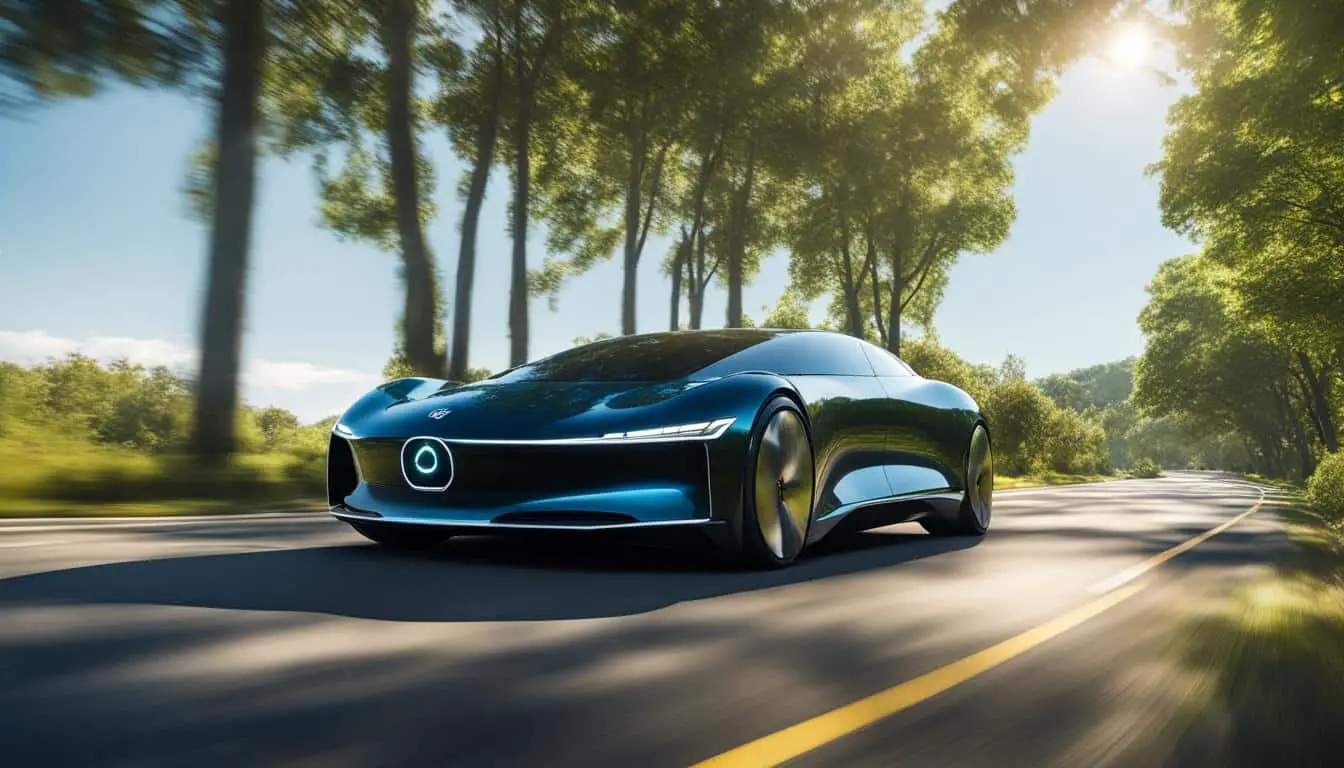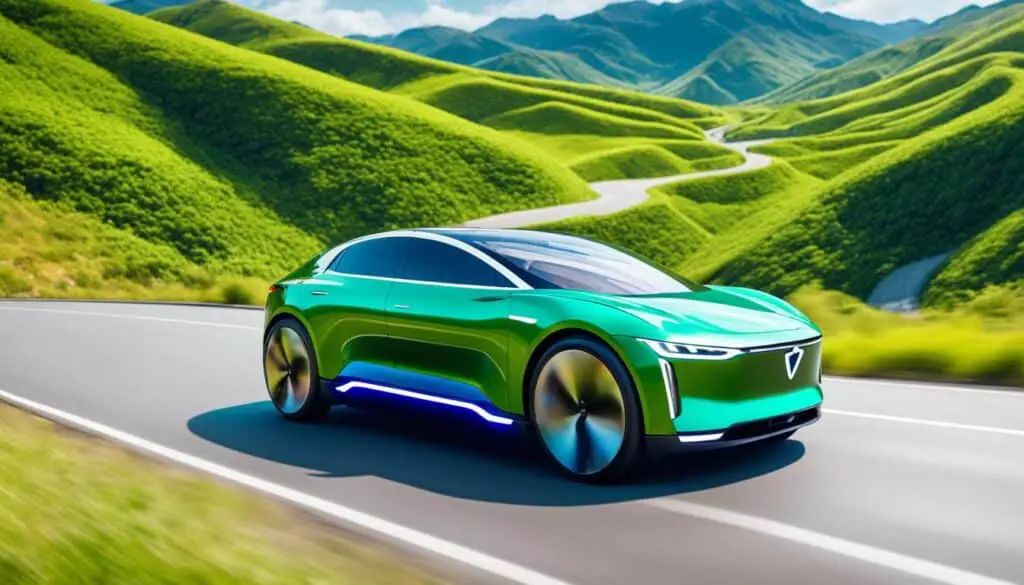
Energy Efficiency in Autonomous Vehicles: The Road Ahead
In recent years, the automotive industry has witnessed a revolution with the introduction of autonomous vehicles. These self-driving cars offer the potential for safer, more efficient, and more sustainable transportation. One of the key factors driving the adoption of autonomous vehicles is their energy efficiency. Energy efficiency plays a crucial role in reducing fuel consumption and emissions, while also contributing to a greener and more sustainable future.
Autonomous vehicles leverage advanced technologies and algorithms to optimize fuel consumption, choose energy-efficient routes, and avoid unnecessary idling. By doing so, they not only reduce fuel consumption and emissions but also extend battery life and minimize the need for frequent charging. The integration of artificial intelligence (AI) systems enables real-time data analysis, allowing for intelligent route planning, speed adjustments for fuel efficiency, and efficient energy management. As battery technology continues to improve, and renewable energy sources and smart grid integration become more prevalent, the future of energy efficiency in autonomous vehicles holds promise for an even cleaner and greener transportation ecosystem.
Key Takeaways:
- Autonomous vehicles offer the potential for safer, more efficient, and more sustainable transportation.
- Energy efficiency in autonomous vehicles reduces fuel consumption, emissions, and the need for frequent charging.
- The integration of artificial intelligence (AI) systems optimizes route planning, speed adjustments, and energy management for increased efficiency.
- Advancements in battery technology, renewable energy integration, and smart grid integration further enhance energy efficiency in autonomous vehicles.
- Energy-efficient autonomous vehicles contribute to a greener and more sustainable transportation future.
The Advancements in Energy Efficiency of Autonomous Vehicles
As the automotive industry continues to prioritize environmental sustainability, advancements in energy efficiency are revolutionizing the future of transportation. Self-driving cars, also known as autonomous vehicles (AVs), rely on advanced technologies and computing power, leading to a significant demand for energy. However, continuous innovations in powertrain technology and intelligent systems are paving the way for more energy-efficient AVs.
One notable advancement is the integration of electric powertrains in AVs. Electric motors offer higher efficiency compared to traditional internal combustion engines, resulting in reduced energy consumption and a significant decrease in greenhouse gas emissions. Electric powertrains also contribute to increased sustainability by minimizing the reliance on fossil fuels, thereby mitigating the environmental impact associated with traditional fuel-powered vehicles.
A key feature that enhances energy efficiency in AVs is the implementation of regenerative braking systems. These systems capture and store energy that would have otherwise been wasted during deceleration, increasing the overall efficiency of the vehicle. By converting kinetic energy into usable electrical energy, regenerative braking systems contribute to greater energy savings and a more sustainable transportation ecosystem.
Optimized route planning is another crucial aspect of energy efficiency in AVs. Advanced GPS and mapping technologies enable self-driving cars to choose the most energy-efficient routes, minimizing unnecessary mileage and reducing energy consumption. By avoiding traffic congestion and inefficient roads, AVs can significantly enhance energy efficiency and contribute to potential savings.
Intelligent energy management systems play a vital role in optimizing overall energy usage in AVs. These systems monitor and regulate energy-consuming components, such as air conditioning and lighting, to ensure optimal energy efficiency. By analyzing real-time data and adjusting energy usage accordingly, intelligent energy management systems maximize energy savings, further improving the overall efficiency of AVs.
The integration of renewable energy sources and the development of smart charging infrastructure also promote sustainable energy solutions in AVs. Incorporating renewable energy, such as solar and wind power, into the charging infrastructure of electric AVs contributes to greener transportation by reducing dependence on non-renewable energy sources. Additionally, the implementation of smart charging infrastructure ensures efficient and optimized charging strategies, maximizing energy efficiency further.
In summary, the advancements in energy efficiency of autonomous vehicles are revolutionizing the transportation industry. Electric powertrains, regenerative braking systems, optimized route planning, intelligent energy management systems, and the integration of renewable energy sources and smart charging infrastructure are key drivers of energy efficiency in AVs. These advancements not only promote a greener and more sustainable future but also offer potential cost savings and reduced environmental impact.
The Environmental Impact and Potential Savings of Energy-Efficient Autonomous Vehicles
Energy-efficient autonomous vehicles have a significant impact on the environment and offer potential savings. By reducing fuel consumption and emissions, these vehicles contribute to a greener future. According to a report by the Union of Concerned Scientists, self-driving cars can reduce emissions by up to 60% compared to traditional vehicles. The integration of electric vehicles and autonomous technology accelerates the adoption of clean, sustainable energy sources.
Energy-efficient autonomous vehicles optimize routing, minimize unnecessary mileage, and reduce congestion, resulting in reduced energy consumption and shorter travel time. The rise of ride-sharing and personalized mobility services enabled by autonomous vehicles can lead to a decrease in the overall number of vehicles on the road, further reducing energy consumption. Intelligent energy management systems optimize energy usage, ensuring efficient operation without frequent recharging.
The potential savings of energy-efficient autonomous vehicles are significant, with studies suggesting that they could save billions of gallons of fuel annually in the United States alone.

Benefits of Energy-Efficient Autonomous Vehicles
| Environmental Impact | Potential Savings |
|---|---|
| Reduces emissions by up to 60% compared to traditional vehicles | Saves billions of gallons of fuel annually |
| Minimizes unnecessary mileage and congestion | Decreases the overall number of vehicles on the road |
| Promotes the adoption of clean, sustainable energy sources | Optimizes energy usage and reduces the need for frequent recharging |
Energy Efficiency Potential in Electric Autonomous Vehicles
Electric autonomous vehicles (E-CAVs) present a wealth of opportunities for enhancing energy efficiency in transportation. Combining the advantages of electrification, connectivity, and autonomous driving, E-CAVs have the potential to revolutionize the way we think about energy consumption and sustainability.
One key aspect that contributes to the energy efficiency potential of E-CAVs is their ability to utilize vehicle-to-vehicle (V2V) and vehicle-to-infrastructure (V2I) communications. These connections enable E-CAVs to optimize their driving patterns, minimizing unnecessary acceleration and deceleration, and choosing the most energy-efficient routes. By leveraging real-time data and advanced algorithms, E-CAVs can operate with increased efficiency, leading to reduced energy consumption and lower carbon emissions.
To further enhance energy efficiency, E-CAVs can integrate regenerative brake systems. This technology allows the vehicle to capture and recover energy that would otherwise be lost during deceleration. By converting this energy into usable power, E-CAVs can increase their overall efficiency and reduce reliance on external energy sources.
Additionally, the development of smart charging infrastructure tailored to E-CAVs can significantly contribute to energy efficiency. Optimizing charging based on traffic patterns and grid capacity ensures that E-CAVs receive power when it is most efficient and environmentally friendly. This intelligent charging approach prevents unnecessary strain on the power grid and maximizes the use of renewable energy sources.
Speaking of renewable energy, the integration of solar and wind power further enhances the sustainability of E-CAVs. By utilizing clean, renewable energy sources to power these vehicles, we can reduce our dependence on fossil fuels and mitigate the environmental impact of transportation.

The Future of Energy Efficiency in E-CAVs
The future holds immense promise for increasing energy efficiency in E-CAVs. As technology continues to evolve, advancements in battery technology will lead to improved energy storage capacity and longevity, further optimizing the efficiency of E-CAVs. Moreover, the integration of artificial intelligence and machine learning algorithms into E-CAVs will enable them to continuously learn and adapt, finding even more energy-efficient ways to operate.
E-CAVs have the potential to transform the transportation landscape, offering not only increased convenience and safety but also a greener and more energy-efficient future.
By tapping into the energy efficiency potential of electric autonomous vehicles, we can make significant strides towards a sustainable transportation ecosystem. Driving advances in battery technology, optimizing charging infrastructure, and embracing renewable energy sources will promote a cleaner, greener future for mobility.
Conclusion
The advancements in energy efficiency of autonomous vehicles are revolutionizing the future of transportation. With a focus on reducing fuel consumption, emissions, and reliance on fossil fuels, self-driving cars are driving us towards a cleaner and more sustainable transportation ecosystem. By optimizing fuel consumption and leveraging advanced technologies, autonomous vehicles are poised to make a significant environmental impact.
The integration of electric vehicles, renewable energy sources, and smart charging infrastructure further enhances energy efficiency. Electric powertrains offer higher efficiency compared to traditional internal combustion engines, reducing energy consumption and greenhouse gas emissions. The development of smart charging infrastructure and the integration of renewable energy sources contribute to a more sustainable and greener future.
While there are challenges such as infrastructure upgrades, regulatory frameworks, and public acceptance to address, the potential savings and environmental benefits of energy-efficient autonomous vehicles are immense. It is crucial for policymakers, industry leaders, and consumers to prioritize the development and integration of autonomous vehicles to fully realize the potential of energy transformation. The future holds promising opportunities for further advancements in energy efficiency, battery technology, renewable energy integration, and smart grid integration.
By continuing to advance and adopt energy-efficient autonomous vehicles, we have the power to create a more sustainable and energy-efficient transportation ecosystem. Let us embrace this new era of transportation and work together towards a future that is greener, more efficient, and environmentally conscious.
FAQ
What is the role of energy efficiency in autonomous vehicles?
Energy efficiency plays a crucial role in reducing fuel consumption and emissions in autonomous vehicles. It helps optimize fuel consumption, choose energy-efficient routes, and avoid unnecessary idling, contributing to a greener and more sustainable transportation future.
How do autonomous vehicles improve energy efficiency?
Autonomous vehicles utilize advanced technologies and algorithms to optimize fuel consumption, choose energy-efficient routes, and intelligently manage energy-consuming components. They also analyze real-time data to optimize route planning and adjust speed for fuel efficiency.
What impact do energy-efficient autonomous vehicles have on the environment?
Energy-efficient autonomous vehicles can reduce emissions by up to 60% compared to traditional vehicles. They contribute to a greener future by reducing fuel consumption, minimizing unnecessary mileage, and promoting the adoption of clean, sustainable energy sources.
How can energy-efficient autonomous vehicles contribute to potential savings?
By reducing fuel consumption and emissions, energy-efficient autonomous vehicles can save billions of gallons of fuel annually. They also optimize energy usage, ensuring efficient operation without frequent recharging, leading to potential cost savings.
What are the opportunities for enhancing energy efficiency in electric autonomous vehicles?
Electric autonomous vehicles offer unique opportunities for enhancing energy efficiency. Technologies such as regenerative brake systems, smart charging infrastructure, and the integration of renewable energy sources can further improve efficiency and reduce energy consumption.
How can electric autonomous vehicles contribute to sustainability?
Electric autonomous vehicles reduce reliance on fossil fuels by utilizing electric powertrains, capturing and storing energy through regenerative braking systems, and integrating renewable energy sources such as solar and wind power.
